James Bay – The World Guitar Day interview: "I don’t want to copy. I want to find new ways to make people hear the guitar"
Award-winning and chart-topping British singer/songwriter James Bay explains how playing guitar changed his life...
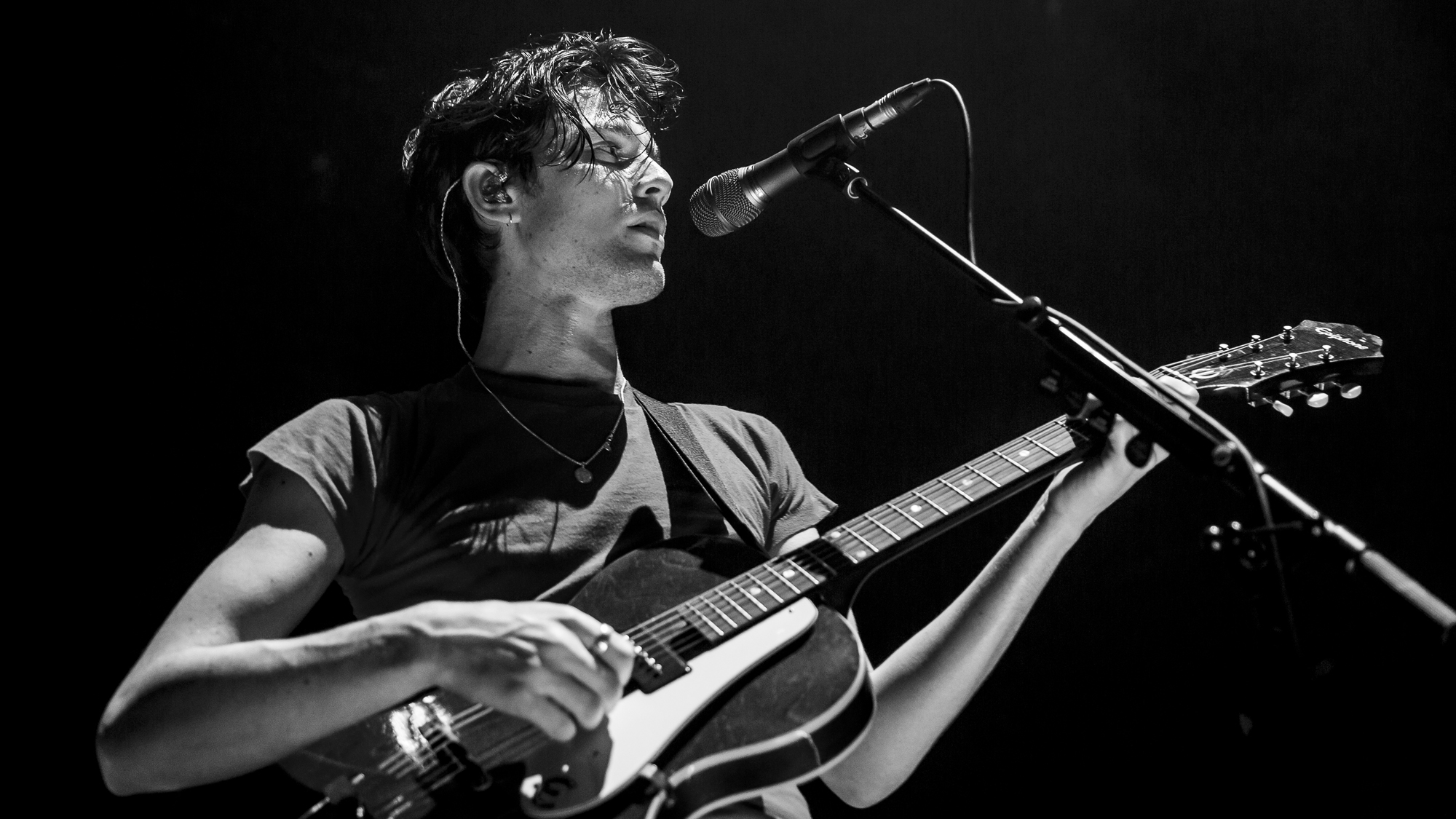
Want all the hottest music and gear news, reviews, deals, features and more, direct to your inbox? Sign up here.
You are now subscribed
Your newsletter sign-up was successful
WORLD GUITAR DAY 2018: James Bay is every bit your modern guitar hero. The young Englishman’s bluesy touches, soulful ingenuity and delicate vocals have earned him Brit Awards and Grammy nominations, as well as a debut album that raced to pole position in the national charts. He’s a prime example of someone who has managed to harness all his talents and focus his ideas to serve the song.
Though his second album, Electric Light, arrived only a matter of months ago, the platinum-selling and Glastonbury-conquering songwriter is already in the studio working on new music, vowing to keep those creative muscles exercised. “Between writing, I’ve been doing more writing,” he laughs. “Which is exciting! I always said I’d release my second album and make sure I carry on… I never want to stop writing. With my first record, we put it out and I didn’t end up thinking about new music for a long time. I want to stay present in that creative state while also promoting music that’s been recorded and released.”
Today, in an exclusive interview for World Guitar Day, he’s taking a moment to reflect on how all of this came to be, starting with the decision that would change his life and turn him into a superstar…
Take us back to the beginning of your journey in guitar. You’ve cited Eric Clapton as the first musician who inspired you to play…
There are certain iconic sounds and timeless moments in music that are incredibly inspiring
“Like many other people who end up playing guitar, it was the song Layla, specifically. That guitar sound, those notes… whatever he was doing, they captured it very well. I heard it at the age of 11 and thought, ‘That’s it, then! I’ve got to pick up a guitar and have a go at replicating those noises!’ It was like realising there was nothing I’d ever wanted to do as much as that. There are certain iconic sounds and timeless moments in music that are incredibly inspiring.
“The song itself is fantastic, it’s one of my favourite songs of all-time and the same goes for the whole record. The production and the band are all fantastic. Never has a classic guitar track opened in such an electrifying way – I don’t mean that because it’s an electric guitar, but rather it being a beautifully, electrifying moment in time!”
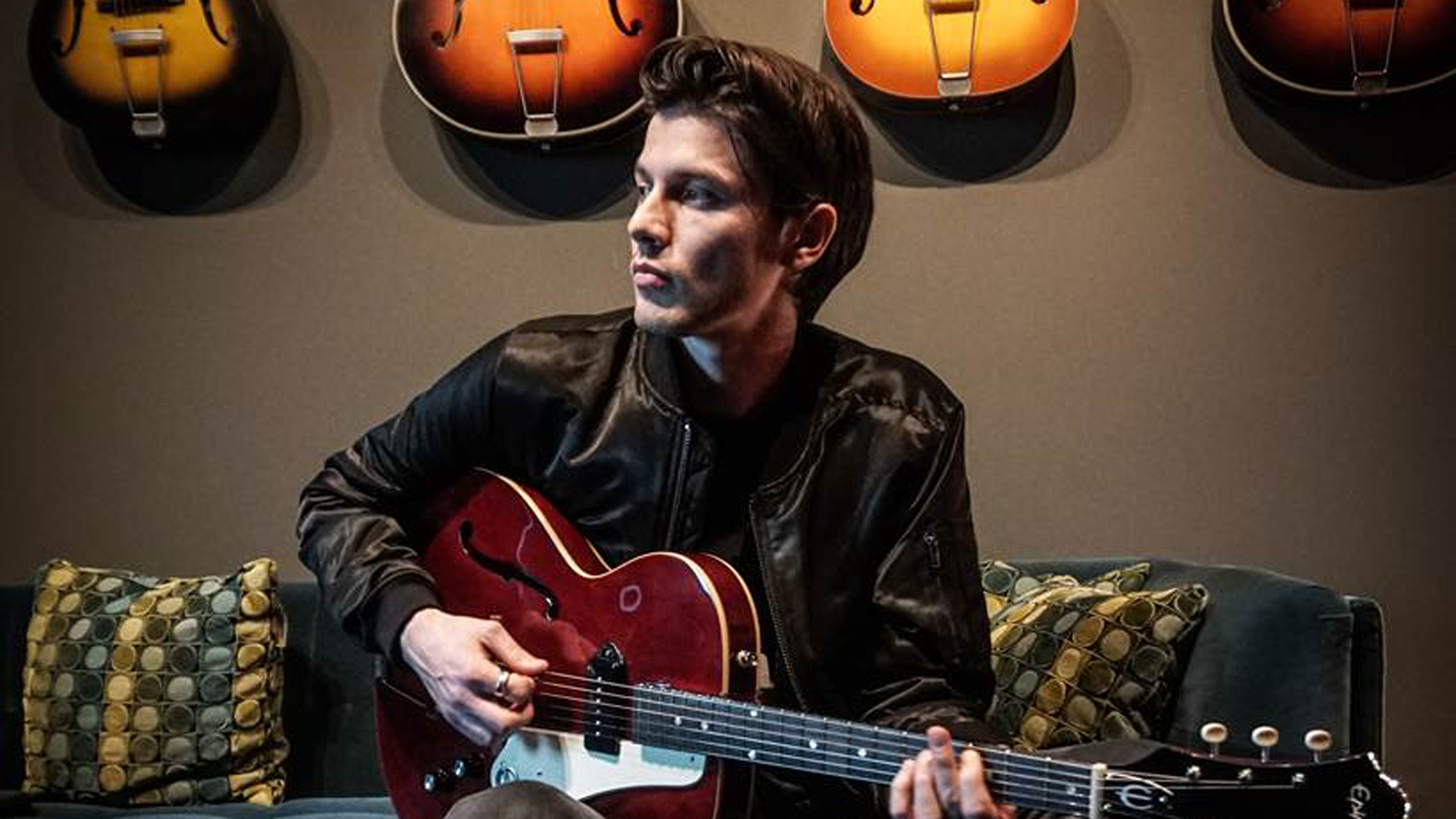
How much did that inform the music you’ve been making all these years later?
Want all the hottest music and gear news, reviews, deals, features and more, direct to your inbox? Sign up here.
“I don’t want to sound too much like him, but when I think about that record now, having spent more time in studios, I start thinking about how it was captured and what distance that mic was from that amp. It sounds like it’s close mic’d but it’s also roomy at the same time, there’s a good amount of shimmer and bounce-back in terms of the guitar sound. Everything in that moment would go on to inspire so many people… I’m one of them!”
Your dad was instrumental in exposing you to these vintage sounds. Was he around to witness the rock’n’roll originals first-hand?
“He’s just coming into his 70s now, so I guess he’s a similar age to a lot of those guitar legends that we both love. He was there as a young bloke in his teens and 20s, watching all the gigs in London. He saw Cream at the Royal Albert Hall on their final night, he saw The Rolling Stones at Knebworth, all these legendary moments. Though he didn’t play himself, I think those guitar sounds were an integral part of his youth and growing up.”
And naturally that got passed down to you...
“He had this great record collection so years later, when me and my brother came along, it all got exposed to us. Both of my parents love music – the guitar stuff is more from my Dad – and my mum, despite owning a Robert Cray record, is more into Motown/soul sound. I think later in my guitar playing life, it got really exciting with my dad showing me the great rock’n’roll guitar stuff and my mum getting me into something different.
“If you look at Duane Allman, for example, he started out playing with Wilson Pickett and guys like that. Jimi Hendrix, who is known for psychedelic blues rock, started out as a rhythm guy for the Isley Brothers and Little Richard... a more soulful atmosphere before coming forward to put the guitar very much at the front of the stage instead of being a sideman.”
What were those early years like for you, learning this excitingly new, near-sacred art form?
You start feeling a bit superhuman when you learn how to make any kind of melody or harmony come out of this box with strings on it
“I did it all myself in the beginning. I had friends at school learning to play and it looked great, so I figured I’d have a go too, but it’s quite private in that early stage. You start feeling a bit superhuman when you learn how to make any kind of melody or harmony come out of this box with strings on it, whether it’s a simple E chord or a 12-bar shuffle vamp… you just feel superman for that five minutes in your bedroom, with nobody else around.
“I remember my parents popping their heads through the door because they could hear something was actually happening. It wasn’t out of tune noise, it was something listenable – which is what you want to achieve. Whatever your own version of music is, whatever genre or style it may be, you become transformed in that moment.”
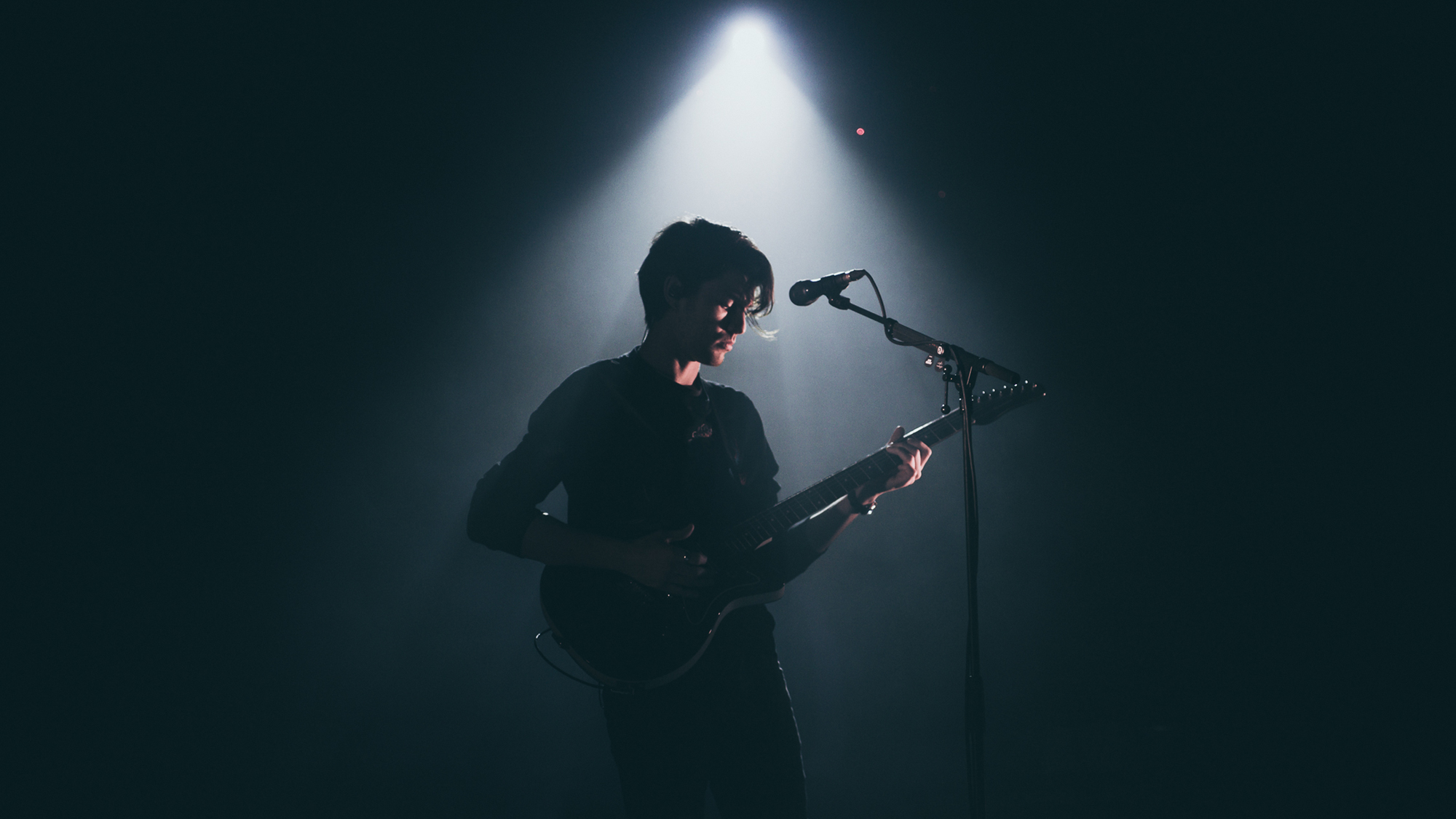
That can only have had a positive effect on your outlook on life...
“When you are learning how to play and gradually become able to play things people could tap their foot along to, ideas played in time with a start and a finish, it elevates you to this higher level. You are quite literally on cloud nine for a moment. It’s exciting, because you can make the noises you hear in your head. If your playing can make someone smile or stop talking and listen, you must be doing something right. Now as a full-time musician, I realise it’s my duty to do it…
“If you put Strange Brew by Cream on and find the notes, you suddenly think, ‘I’m in Cream!’ Right there, in your bedroom, you are Eric Clapton. You feel superhuman for a moment. It’s one of the most special and precious journeys you can go on in life, venturing into these creative unknowns through music. It’s very important. When you get any amount of fluidity in your playing, from strumming a chord evenly or playing a syncopated rhythm or playing a solo or even playing that solo twice as fast, it’s a special moment.”
Did you ever take formal lessons in order to get there?
“I had a little go, but I had no patience for them. I had a few in the early, early days but every time I got home from my 45-minute lesson, I would put a record on and play along – almost slacking off and forgetting all the rules I’d just been taught. I would wander around the fretboard looking for the right order of notes to replicate what I could hear on the records.
“From learning like that, there are other influences I have that other people might not necessarily hear in my music. Derek Trucks is a huge one for me, especially when it comes to finger playing. Mark Knopfler is another one. I think you get a different kind of amplification when you use your fingers, especially with heavier strings and lighter wood. Jack White is another big influence, as is Dan Auerbach from The Black Keys. I’ve always liked him, but I especially dig the early stuff when he was trying to make up for there being no bass player. This list goes on and on! Ronnie Wood and Keith Richards together are amazing; I love how Keith plays in open G a lot but takes the bottom string because he doesn’t need the low D. He wants the A string tuned to G as the main bass note on his guitar. They’re both quite Chuck Berry-inspired, I guess that makes Chuck another inspiration too. Ry Cooder is a huge influence too, I absolutely love his playing.”
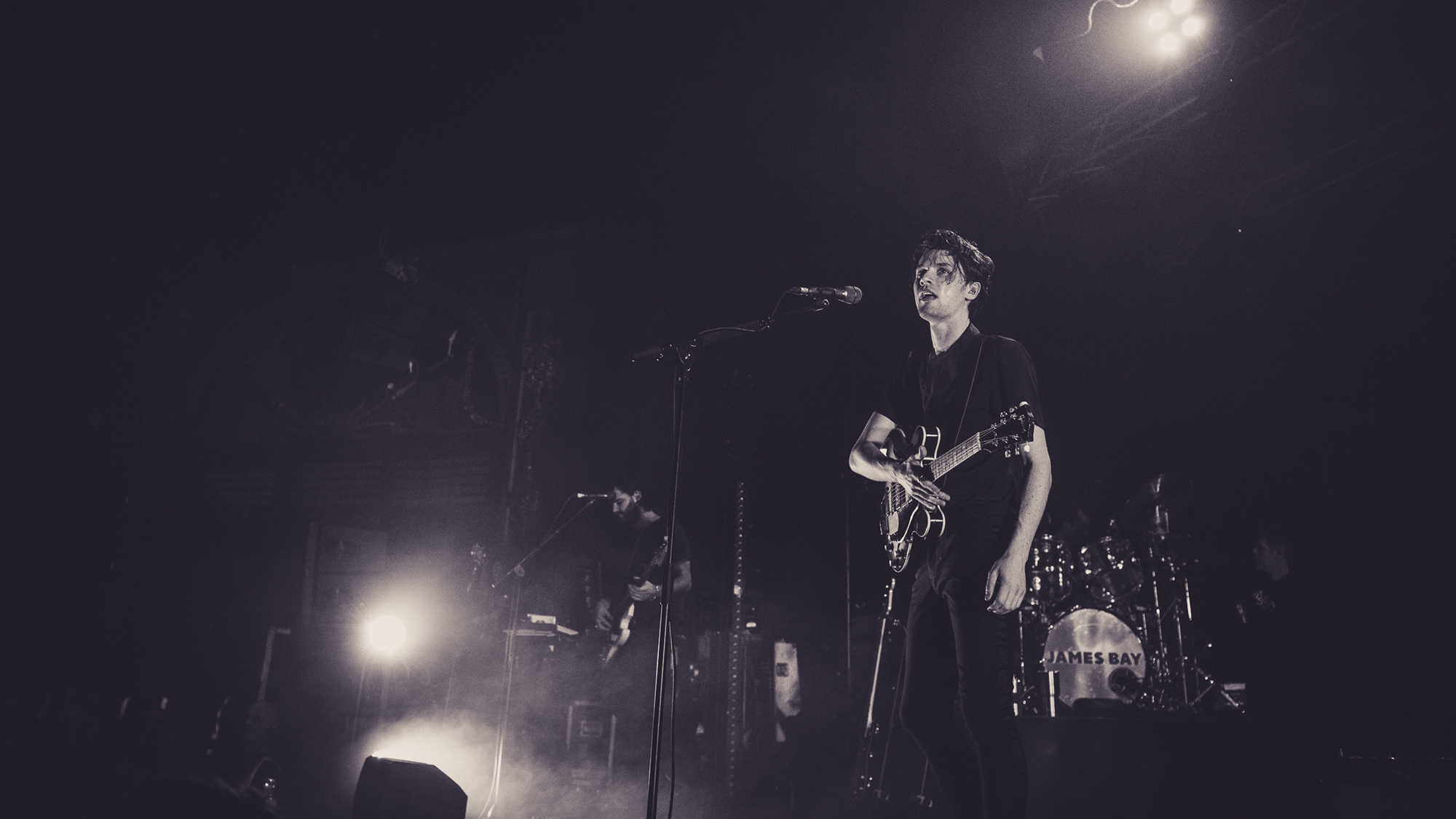
How has your relationship with the guitar changed over the years?
“On my second record, Electric Light, I intentionally covered it in more electric guitar sounds. But has my relationship with it changed? I guess I’ve found a way to include it in the backdrop of my songs more. As a kid, I was the guitar player in bands stood on the side; I wasn’t the frontman in the middle. I got deeply into playing guitar exclusively, so when I moved through that phase and into my more songwriter-inspired phase as a teenager, I honed in on that craft.
“By the time I got to my first record, it didn’t feel right to put lots of guitars at the front of the sound. I didn’t want that in everyone’s faces, I wanted it to be my voice, the lyrics and the song itself. So my relationship has changed since then, because I now enjoy exploring ways to use guitar on my records because it’s like a fifth limb to me, like it is for so many other people. It’s that important to me!”
As for your approach, it often feels like you are trying to discover new things on an instrument that some might say has been fully explored...
“I’ve been finding ways to use it in ways I wouldn’t expect to hear in the music of this time. To put it simply, I want to approach guitar playing in a different way to other people. I don’t necessarily want to hear the guitar like its played on my favourite records, I don’t want to just copy in that respect. There’s nothing wrong with that because we will always put our own interpretations on how we play things… but I just want to find new ways to make people hear the guitar. That might involve using different guitars and amps.”
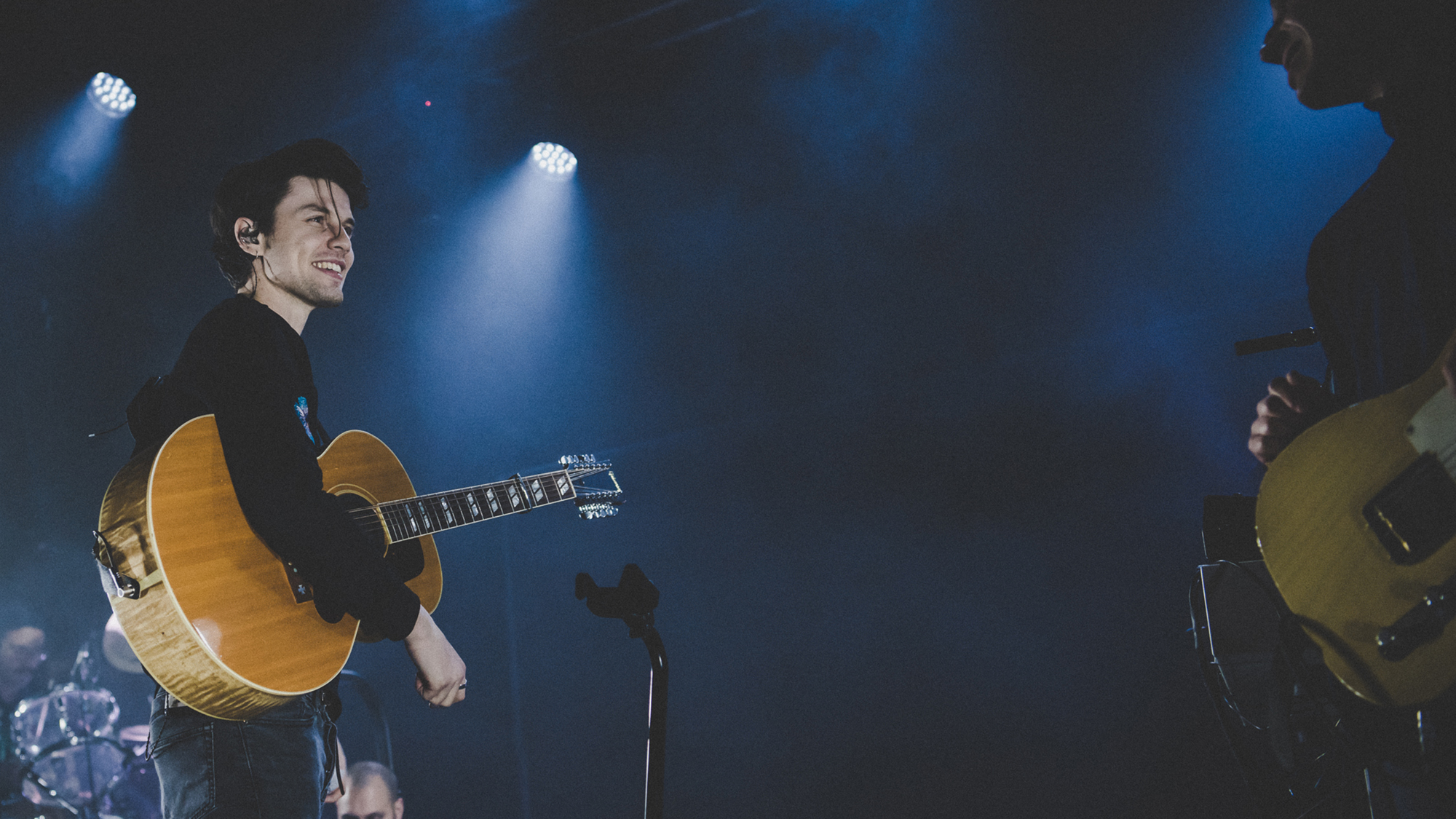
Speaking of which, you’ve mainly been known to use Victory, Marshall and Tone King amps...
“Victory make fantastic amps. The V40 Deluxe still blows my mind, both me and my other guitarist Andy [Cortes] used the V40 on tour over 2015 and 2016, but on the Deluxe version they’ve improved the sound even more… I just can’t say no to that! I’m really digging the Marshall Astorias too, then there’s the Tone King amps made in Baltimore. They are dreamy and fantastic-sounding. I’ve been playing through the Sky King a lot since around 2014, and if I want an even smaller amp I’ll go through the Falcon. And it’s any combination of those three amps for me – combos as opposed to stacks a lot of the time.
“That said, on the last record, I used this tiny little combo from 1959 for a lot of the tracking – a Selmer Truvoice. They’re an old brand of amps that used to make small practice amps for toy store catalogues. The Truvoice was this tiny little thing only 30cm wide, 20cm high and 15cm deep. And though it’s probably only about four Watts, if you turn it all the way up it sounds like Ray Davies when he cranked his amps for distortion in The Kinks. This really brutal and scratchy distortion, which I would add a little bit of spring reverb or slapback echo, and there would be so much character. There’s enough space and character in that sound, and I found it inspiring.”
Pedal-wise, aside from the Strymon Big Sky, you’ve generally kept with a simple set-up over the years…
I like heavier gauges because I like having more of a fight with the guitar
“Yeah, I don’t go too deep into pedals. I did use a bit more on this latest album, but usually it’s quite straightforward. I think the Big Sky is excellent, but I’m not great with technology. If you give me a pedal that does a million things, I struggle to use it. I actually now prefer the Flint, which is a bit easier to use. It does six or eight different things in total and I actually love there being that limit to what it does, so the Big Sky has taken a bit of a backseat. It’s a fantastic pedal because you can do so much with it, but for me I want more potency and flavour to come from my hands. Then I went from those to this little pink pedal called the Malekko Spring Reverb, which are made in France. I just fucking love it, what a great little thing… it’s not necessarily better, I just like the character of the sound a bit more for some reason.”
What other pedals - even if you don’t use them - are in the collection at home?
“I don’t go too mad beyond a cool reverb, delay or something like Analogman Bi-Chorus, though I do own a Fuzzboy, ha ha! It’s an old Nintendo Gameboy gutted out with a dirty and filthy fuzz inside it – it’s fun and gimmicky! To be honest, I’ve been finding ways to get into drier sounds more recently…
“Andy has started using these Caroline pedals, which I haven’t tried myself but he’s been making beautiful noises with them. But however many pedals you use to evolve your sound into this endless bottomless pit kind of adventure, it’s how they respond and react to what my hands are doing that matters. That’s what I give a shit about. I care more for different gauge strings than I do pedals!”
So what kind of string gauge do you prefer?
“I like heavier gauges because I like having more of a fight with the guitar... I don’t want it too easy! I prefer a lighter guitar with thick strings to create more work for my hands. On my Epiphone Century I use a wound G-string like on an acoustic, usually 12s or 13s if I drop down a whole tone. Those things matter to me as much, if not more, than pedals.
“One guitar I use a lot is a 1966 hollowbody Epiphone Century. It’s very old and light. Out of the solidbody guitars I use, it’s never an archtop Les Paul. I have a Les Paul Special, which has a flat top and double cutaways, which makes a light guitar. And I have an early 60s SG that has one P90 and again there’s not a lot of wood to it. The big heavy strings can change how you sound, with a pick or without. It’s like a wrestling match!”
Stevie Ray Vaughan and Gary Moore are both classic examples of guitars that used to wrestle their guitars at times…
“Yeah, the seamless thing gets a bit dull after a while. If you think about Stevie Ray Vaughan’s best bends, there’s probably a couple of notes where he’s slipping off the strings or bent the B string and caught the G to get this weird tone or he’ll run up to the top, on the 14th fret of the high E bending up a tone and a half… on 13 gauge strings! It makes you lose your mind. It’s so sweet and perfect and yet you can hear these odd tones and other licks as he’s fighting those massive, thick strings on a Strat. That journey, that story alone, from note-to-note, is more exciting and dramatic.
“Jack White used to say a lot about this kind of stuff and his own set-ups, making sure it’s not too easy for himself because it sounds boring. And it will be boring for him and it will be boring for everyone else. So don’t make it easy! He’ll put his mic stand in the middle of the stage but he’ll make sure his pedals are a few metres to the right so that he has to jump over, keep his balance, hit something, carry on playing and jump back over to the mic. He makes it a wrestle, like a fight, and the stage is his assault course. There’s something in that… I like it.”
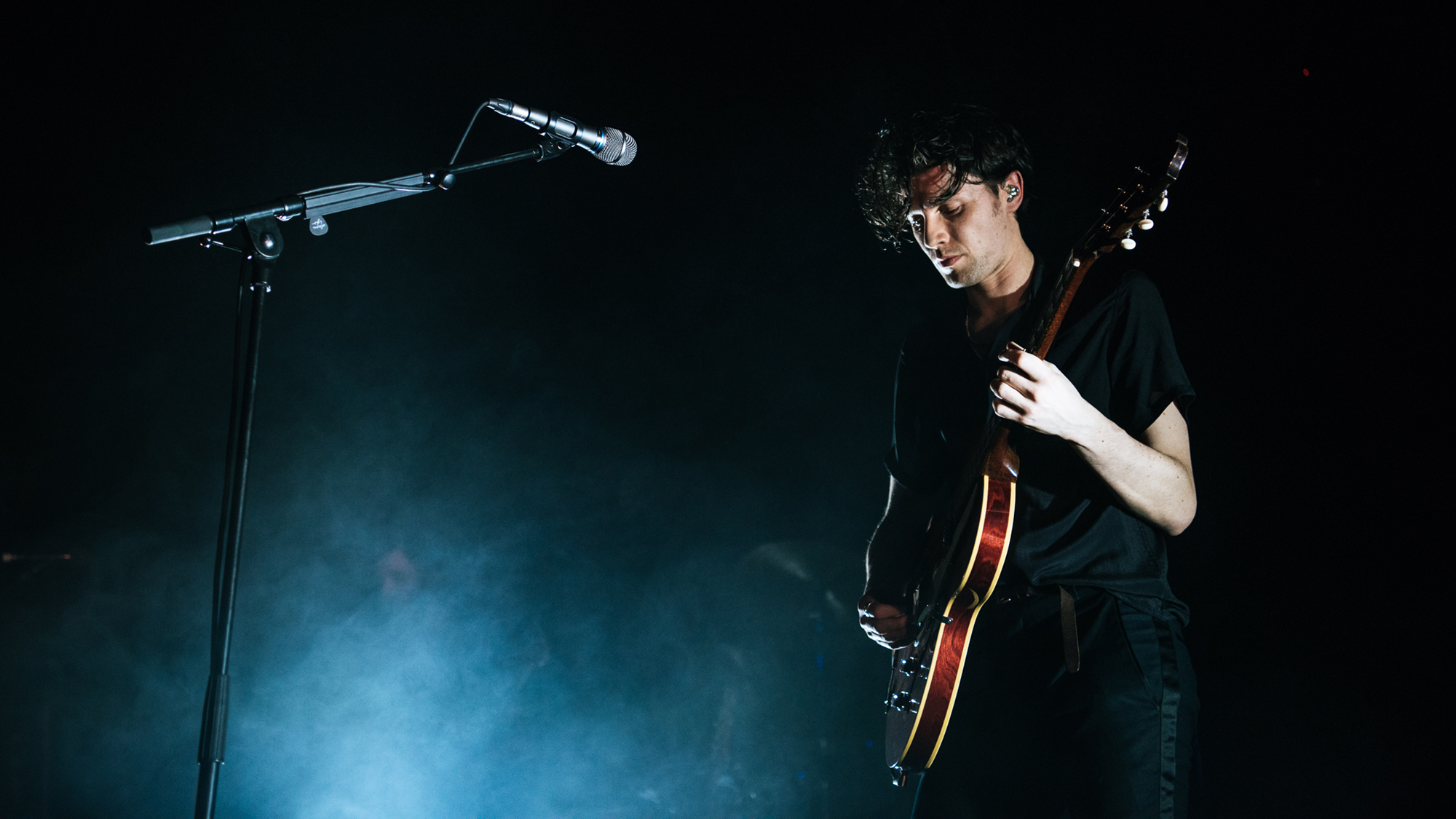
Do you ever have bad days as a guitar player?
“Yes, just like anyone else. It’s a superhuman feeling when you are having a great time, but music can be a very human experience when it’s not going so great. It can be a reflection of our states, feelings and emotions… sometimes it might not line up in the right way. You pick the guitar up and in 15 seconds, or even 15 minutes, you’ll put the thing down.
“That said, when I was 17 in my bedroom, I wouldn’t put my guitar down for six hours! There are days where I’ll still play all day long, though it’s a little different these days with so much going on. It gets harder to do that! It’s all about where the music takes you… and my life revolves around music. I’m listening to it or playing it all the time, you might think too much of one thing might get boring for someone, but not for me. As a touring musician, I might not go to as many gigs anymore, but I always have music on because I can only feel whatever it is I feel through music.
"That’s the beauty of it, for myself and others, I guess. Maybe the superhuman part is more when you’re learning the instrument, but I still feel it from time to time now. I guess that keeps me human too – I can play and get a reaction from other people. That’s the most important thing about being able to play… I can reach other people not through words, but through sound.”
Electric Light is out now.
Join us in celebrating World Guitar Day 2018! Get playing, and share your best guitar videos, pictures, tips and stories with hashtags #WGD18 #worldguitarday
Amit has been writing for titles like Total Guitar, MusicRadar and Guitar World for over a decade and counts Richie Kotzen, Guthrie Govan and Jeff Beck among his primary influences. He's interviewed everyone from Ozzy Osbourne and Lemmy to Slash and Jimmy Page, and once even traded solos with a member of Slayer on a track released internationally. As a session guitarist, he's played alongside members of Judas Priest and Uriah Heep in London ensemble Metalworks, as well as handling lead guitars for legends like Glen Matlock (Sex Pistols, The Faces) and Stu Hamm (Steve Vai, Joe Satriani, G3).
